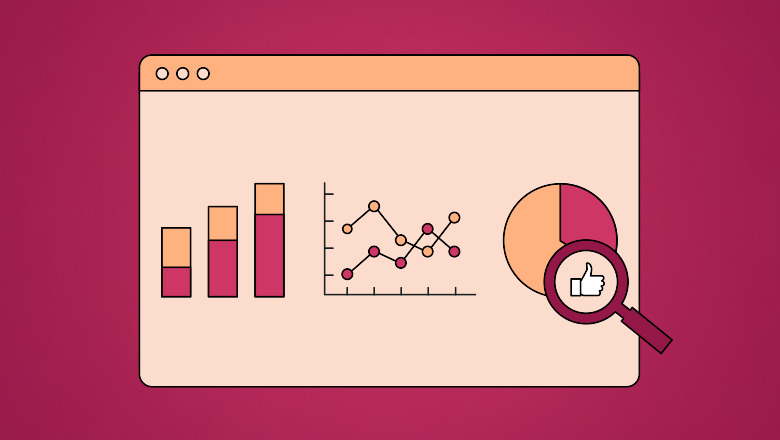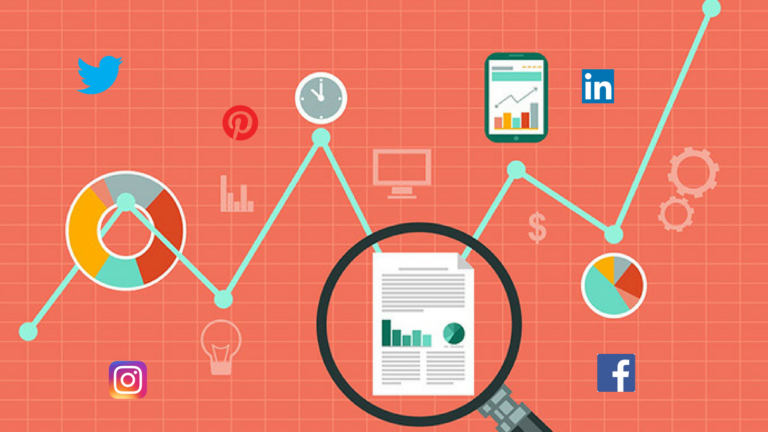Social media has become an integral part of modern communication, both for individuals and businesses. In this digital age, how to track social media analytics is crucial for understanding audience behavior and measuring the effectiveness of your social media strategies. Let’s delve into the essential steps and practices for effective social media tracking.
In the vast landscape of social media, where content is king, understanding how your audience engages with your posts is paramount. Social media analytics provides valuable insights into the performance of your content, helping you refine your strategies and boost engagement.
Why Track Social Media Analytics?
1. Understanding Audience Behavior
Social media analytics allows you to delve into the preferences and behaviors of your audience. By knowing what content resonates with them, you can tailor your posts to better meet their expectations.
2. Measuring the Effectiveness of Social Media Campaigns
Tracking analytics enables you to assess the success of your social media campaigns. Whether it’s a product launch or a promotional event, understanding the impact of your efforts is key to refining future campaigns.
Choosing the Right Social Media Analytics Tools
With a plethora of analytics tools available, it’s essential to choose the one that aligns with your needs. From the robust features of Google Analytics to the simplicity of native platform insights, each tool offers unique advantages.
Overview of Popular Analytics Tools
- Google Analytics
- Facebook Insights
- Instagram Analytics
- Twitter Analytics
Factors to Consider When Selecting a Tool
- Compatibility with your social media platforms
- Depth of analytics provided
- User-friendly interface
Setting Up Analytics Tracking
1. Connecting Social Media Accounts to Analytics Tools
The first step in tracking social media analytics is linking your accounts to your chosen analytics platform. This integration allows for seamless data collection.
2. Configuring Tracking Parameters
Define the key metrics you want to track. Whether it’s likes, shares, or conversion rates, configuring these parameters ensures you gather relevant data.
Key Metrics to Monitor
1. Engagement Metrics (Likes, Comments, Shares)
These metrics gauge the level of interaction your posts receive. High engagement indicates content resonance.
2. Reach and Impressions
Understanding how far your content reaches is crucial. Impressions reveal the number of times your content is displayed.
3. Conversion Tracking
For businesses, tracking conversions from social media is vital. Whether it’s website visits or product purchases, conversion tracking provides actionable insights.
Interpreting Analytics Data
1. Analyzing Trends and Patterns
Raw data is just the beginning. Interpret trends and patterns to gain a deeper understanding of audience preferences and behaviors.
2. Making Data-Driven Decisions
Use the insights gleaned from analytics to make informed decisions. Whether it’s adjusting posting schedules or refining content strategies, let data guide your choices.
Common Challenges
1. Dealing with Data Inaccuracies
Not all data is foolproof. Be aware of potential inaccuracies and anomalies, and cross-verify with multiple sources.
2. Addressing Privacy Concerns
As privacy concerns rise, ensure your tracking practices comply with relevant regulations. Communicate data usage policies to your audience.
Best Practices for Effective Social Media Tracking
1. Consistent Monitoring and Analysis
Regularly monitor analytics to stay abreast of changes. Consistent analysis helps identify long-term trends.
2. Adjusting Strategies Based on Insights
Use analytics not just for monitoring but also for adaptive strategies. If certain content performs exceptionally well, replicate the success.
Utilizing Social Media Analytics for Content Strategy
1. Tailoring Content Based on Audience Preferences
Analytics unveil what content resonates. Tailor future posts to align with the preferences of your audience.
2. Optimizing Posting Schedules
Identify peak engagement times through analytics and schedule posts accordingly for maximum impact.
Staying Updated with Social Media Trends
1. Importance of Adapting to Changes
Social media trends evolve rapidly. Stay informed about the latest features and algorithms to remain relevant.
2. Continuous Learning and Improvement
Adopt a mindset of continuous learning. Experiment with new approaches based on evolving analytics insights.
Future of Social Media Analytics
1. Emerging Trends and Technologies
Explore the cutting-edge developments in social media analytics, from AI-driven insights to predictive analytics.
2. Predictions for the Future of Analytics
Speculate on how social media analytics might evolve and shape the future landscape of digital marketing.
Conclusion
In conclusion, mastering the art of tracking social media analytics is a journey that leads to strategic success in the digital realm. Regular monitoring, insightful analysis, and adaptive strategies are the keys to unlocking the full potential of your social media presence. Ready to elevate your analytics game? Request a demo from AIM Technologies today and embark on a data-driven journey towards social media excellence.
FAQs
Can I use multiple social media analytics tools simultaneously?
- Yes, but it’s recommended to choose tools that complement each other to avoid data discrepancies.
How often should I review social media analytics?
- Regular reviews, at least weekly, help in staying proactive and adapting strategies promptly.
Are there free social media analytics tools available?
- Yes, many platforms offer basic analytics for free, but more advanced features may require a subscription.
What is the significance of engagement metrics?
- Engagement metrics reflect how your audience interacts with your content, indicating content resonance.
How can social media analytics benefit small businesses?
- Analytics provide valuable insights for small businesses to refine their strategies, target audiences effectively, and compete with larger counterparts.



